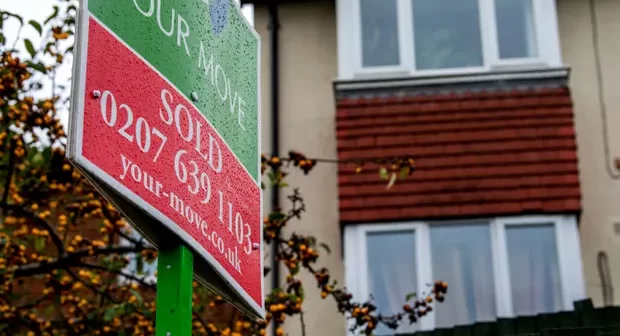Annual house price growth in the UK turned negative in February for the first time in almost three years, Nationwide data shows, falling to its lowest level since November 2012.
The year-on-year 1.1% fall in prices represented the first annual decline in the cost of a home since June 2020, when the housing market reopened after the first Covid lockdown.
House prices fell 0.5% in February, compared with a month earlier, the sixth month in a row that they have declined on the building society’s regular survey.
The slide saw the average price of a home fall to £257,406, almost £900 lower than a month earlier. UK house prices are now 3.7% lower than they were at the peak reached in August 2022.
“While financial market conditions normalised some time ago, housing market activity has remained subdued,” said Robert Gardner, Nationwide’s chief economist.
“This likely reflects the lingering impact on confidence as well as the cumulative impact of the financial pressures that have been weighing on households for some time.”
House prices have fallen at a time that household finances have come under pressure from rising interest rates and high inflation, which has outstripped pay increases.
Nationwide said it was hard to predict when the housing market might regain momentum because “economic headwinds look set to remain relatively strong”.
Even though mortgage rates have stabilised in recent months, they remain well above the lows recorded in 2021, and many expect the labour market to weaken in coming months, creating more uncertainty for prospective housebuyers.
A recent survey showed that those who want to sell their home in the current conditions are having to shave an average of £14,000 off the original asking price.
The property website Zoopla found that demand from housebuyers was weaker, and the asking price of more than 40% of the homes it currently had listed for sale had been lowered.
Despite the recent house price falls, Nationwide found that prospective first-time buyers who earn the average income and are looking to buy a typical home would still face higher-than-average mortgage repayments.
In addition, they would also face challenges saving for a deposit because of the rising cost of living, and recent increases in rent in the private rented sector.

